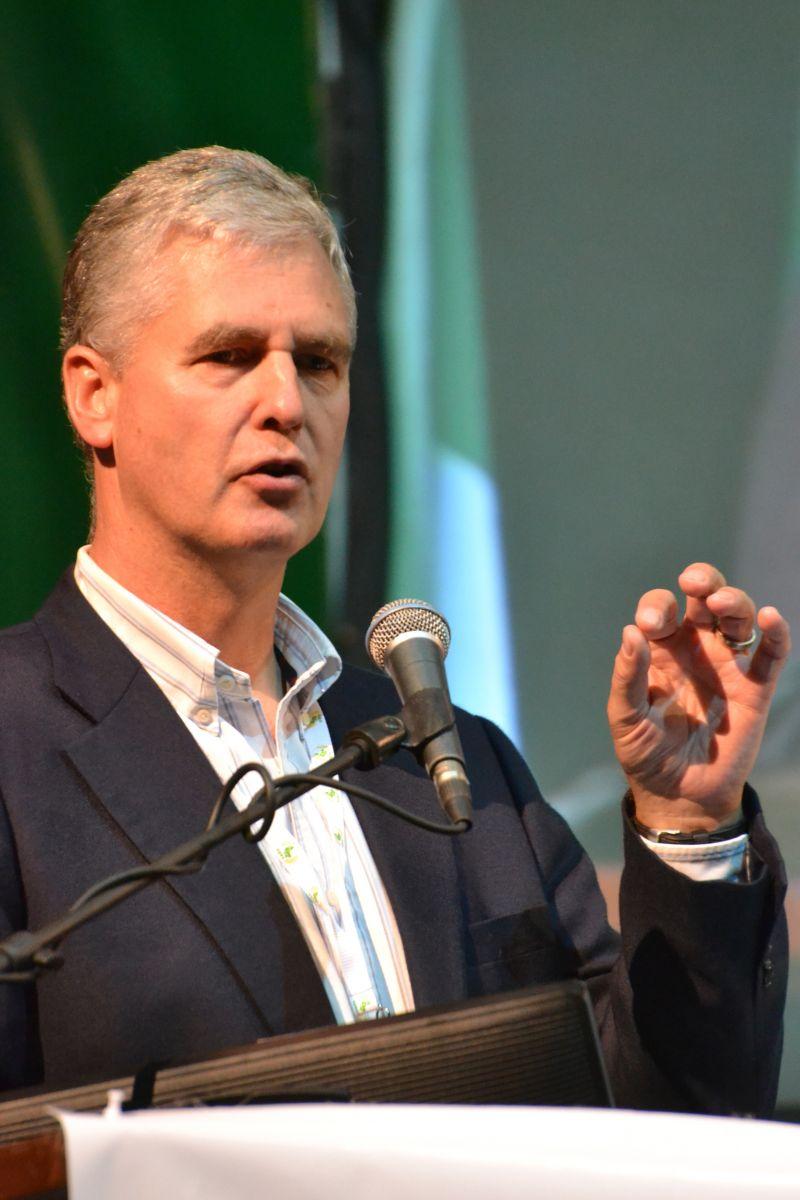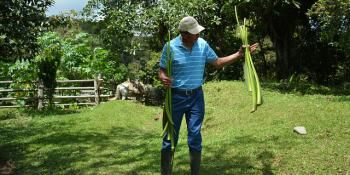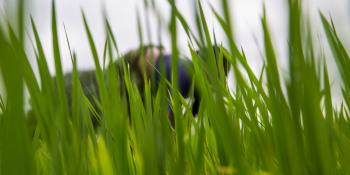Committed to helping Africa feed Africa

CGIAR invested 53 percent of its funding in Africa last year. This sends a clear message that the 15 CGIAR Research Centers and many Challenge Programs, are committed to Africa’s development.
But progress on these investments and uptake of new agriculture  technologies will only be possible through effective and strong partnerships, said CGIAR CEO Frank Rijsberman speaking to the General Assembly audience.
technologies will only be possible through effective and strong partnerships, said CGIAR CEO Frank Rijsberman speaking to the General Assembly audience.
Frank Rijsberman was one of the keynote speakers at the Africa Agriculture Science Week, held in Ghana last week.
July is the coolest month in Ghana, though temperatures still peak at about 27 degrees Celsius everyday. Unless you live here, it is hard to imagine how hot Ghana is the rest of the year, and how people cope with the constant humid heat.
Truth is, Ghana together with many other African countries, is increasingly experiencing warmer and dryer periods, combined with rainfall that can’t be trusted like before. In addition, the country is suffering from severe nutrient-deficient soils. Soil degradation is perhaps the greatest limitation on improved agricultural productivity.
These are a few of the reasons why the CGIAR Research Program on Climate Change, Agriculture and Food Security (CCAFS) has selected Ghana as one of its focus countries. But an effective approach in Ghana is closely linked to the overall performance of CGIAR.
Reforming CGIAR was a necessity
Frank Rijsberman took the audience through CGIAR's history, starting with the Green Revolution. The CGIAR Consortium played a key role during this agricultural revolution by providing new types of seed, fertilizer usage and knowledge and more. To use Dr. Rijsberman’s words: ‘it was the glory of the CGIAR’.
The revolution didn’t really propel Africa into increased food productivity as it did in Asia. And thirty years down the road we find an African agriculture stagnated or declining in productivity. Considering that Africa used to be a key net exporter of agriculture products, this is a tragic development.
According to Rijsberman, for many years CGIAR was probably not ready or able to help Africa push the African agriculture envelope. However with an organisational reformation ongoing since 2008 there is renewed hope.
View Frank Rijsberman's Presentation:
CGIAR has managed to not only increase funding with 20 percent but all centers are now working collectively under one single research agenda, and are focused on delivering development outcomes that align with the Sustainable Development Goals. As Frank Rijsberman put it,
We want researchers to understand development impact pathways so that our research ends up in the hands of farmers and have impact!
Under CGIAR leadership CCAFS will continue to push the research agenda in our 9 East and West African countries, in close collaboration with farmers, farmers’ organisations, local governments, universities, and development organisations. The aim is to address farmers’ need to adapt to and mitigate climate change. This is our mission and we are here to stay until we succeed.
Watch Frank Rijsberman talk about the importance of partnerships for CGIAR:



